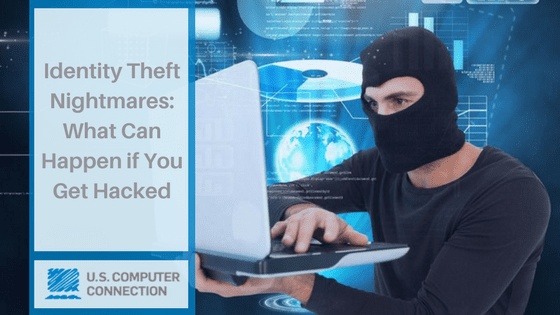Thanks to the recent Equifax hack, where the personal information of more than 14.5 million people was compromised, there is growing public interest in the problem of identity theft. While most people are aware that identity theft is a serious issue, fewer people understand the real-world consequences that can occur when a person gets hacked.
Being a victim of identity theft can affect virtually every area of your life, including your present and future financial stability. Learn more about what can happen if you get hacked, and read about one man’s identity theft nightmare that shows the seriousness of this issue.
One Man’s Nightmare
If you’ve never been personally affected by identity theft, then it can be hard to understand why this issue is so serious. However, if you’ve ever been hacked, which happened to William Burnett, the devastating nature of identity theft becomes immediately clear.
Although Mr. Burnett isn’t quite sure how his information was compromised, he is constantly reminded of the theft of his identity. For instance, he still receives notifications that accounts have been fraudulently opened using his name, and while he was fortunate enough not to lose any money after being hacked, his credit score tumbled nearly 150 points.
Protect Your Personal Information
Clearly, everyone should be concerned with identity theft, particularly since it can happen without you even knowing. Fortunately, there are a few ways that you can fight identity thieves and protect your personal information.
One of the best ways to protect yourself from identity theft is registering with a credit monitoring service and locking your credit. You also need to make sure that your sensitive information, such as your Social Security number, is secure. Finally, it’s a good idea to think about the security of your Internet connected devices. Strengthen your passwords and consider consulting with a cybersecurity professional about how you can secure your devices.
If you still receive paper bills, you should make sure to collect your mail as soon as it’s delivered and shred sensitive documents before throwing them away. Identity thieves have been known to dig through trash for bank and credit statements, which is all they need to steal your identity.
Freezing vs. Locking Your Credit
Following the Equifax hack, the company decided to offer a free for life credit locking service. While you should definitely take advantage of a credit lock if you’re concerned about identity theft, if you want to protect your identity as fully as possible, it’s also a good idea to consider a credit freeze.
In many regards, a credit freeze is a better option than a credit lock. For one, a credit freeze is regulated by the government, meaning the protection of your information is guaranteed by the law. With a credit lock, on the other hand, there is only a contract between yourself and the locking company. Also, lifting and reinstating your credit freeze is often much more affordable than locking and unlocking your credit.
If you’re interested in a credit freeze, make sure to register with all three credit bureaus.
Protect Your Business from Identity Theft
The best way to protect yourself from identity theft is by working with the professionals at U.S. Computer Connection. We can fulfill your cybersecurity needs, including helping you secure your personal information. Contact us today to learn more about our services.

